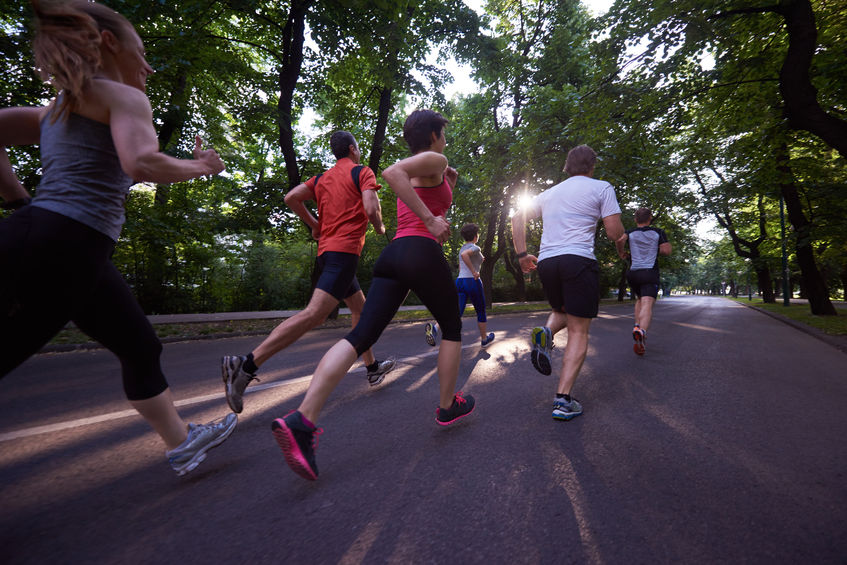Need some fitness motivation?
#withDavida
Sign up for a 5k run.
It doesn’t mean you have to win the race or even run the whole thing. But it’s a goal to work toward and in my opinion it’s just the right amount of running to help get you in shape or change up your fitness routine.
I make my whole family participate in our school district’s yearly 5k run.
- It’s a great family activity and for a good cause.
- It gets my children off the computer and active.
- It also gets my desk-bound husband exercising and I get to use different muscles.
I exercise most days doing cardio and muscle conditioning. While I am fit enough to spontaneously do a three-mile run it doesn’t come easy and I end up being very sore. That’s why the weeks leading up to the race I add a little running into my schedule so those muscles will be ready.
For people who regularly exercise, cross training or trying a different method of exercise is a great way to overcome plateaus. That’s when you’ve seemed to stop losing weight or bored with your routine.
Doing something different challenges your body in a new way.
That’s why cross training is also good for enhancing your strength or skill in your regular activity of choice or just good for preventing injury. It’s like having that fire extinguisher around incase you need to put out a fire. I hope I never “need” to run a 5k but if my life depended on it I could.
For people who don’t regularly exercise running is the easiest and cheapest exercise that will work your overall body and condition your heart.
So how much running should you do and how do you start?
The right answer is different for everyone. A study released earlier this year in the Journal of the American College of Cardiology concludes that light jogging a few times a week should be enough. Researchers say if you want to improve life expectancy than running a little more than two hours a week at a moderate pace is an optimal dose.
I recommend training for a 5k, which is just a little more than three miles, because you can find a good pace for that distance. More is not always better. Running a marathon doesn’t necessarily get you more benefit. The researchers in the Copenhagen City Heart Study also concluded that there could be such a thing as too much running. The study found more intense runners did not fare better and they speculate longer term high intensity running might do at least temporary cardiovascular damage.
Furthermore, if you’re running to lose weight, the more you run, your body becomes more efficient and burns fewer calories.
- Plus constant running takes a toll on the body and causes injuries.
- So start slow. Maybe 10-20 minutes to see if you can run that long. Once it becomes comfortable start increasing your time.
- I prefer to run on a treadmill because it’s easier on my joints and back.
- If you prefer to run outside avoid concrete if you can. A running track or some other soft ground is ideal.
Another reason I like the treadmill is because I can easily monitor the time and level of intensity. I find that when running intervals the workout passes faster and research has found people burn more calories. For example running two minutes at a regular pace and then one-minute at a faster pace.
If you’re a social person the treadmill can be lonely and you might eventually get bored. Try a running club or find a friend to make the commitment with you. Chatting while running adds an extra challenge and will help you find a good pace.
Be sure to consult with your doctor before beginning any new exercising routines. You’ll also want to invest in a good pair of running shoes.
The after glow when you finish the 5k will make you feel good about yourself on the inside and it will show on the outside.
Resources:
- Tips for new runners: http://www.active.com/running/articles/10-tips-for-beginning-runners
- Copenhagen City Heart Study: http://content.onlinejacc.org/article.aspx?articleID=2108914
- http://www.latimes.com/science/sciencenow/la-sci-sn-running-health-20150202-story.html












